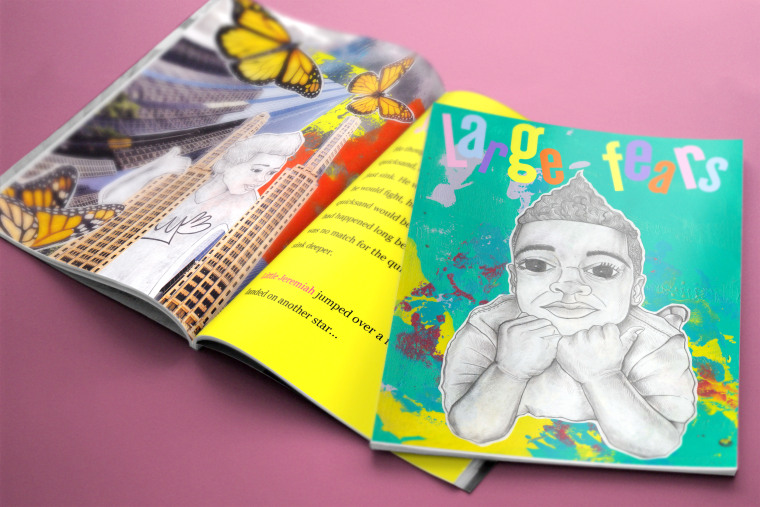Not everyone gets the chance to rewrite their own childhood, let alone reimagine it as an adventure filled with a trip to Mars. But 24-year-old author, Myles Johnson and 27-year-old illustrator, Kendrick Daye are doing just that.
Their new children’s book, “Large Fears,” is inspired by their own experience of feeling invisible due to their sexuality and gender identity. The pair decided to create a storybook featuring a “queer” boy of color named Jeremiah Nebula as the protagonist. In the book Jeremiah must learn to conquer self-doubt in order to find the courage to believe in himself.
Johnson and Daye are hoping to carry that message forth into the world with a Kickstarter campaign aimed at increasing the diversity within children’s literature. A recent study by the Cooperative Children's Book Center found that of the 3,200 children's books published in 2013 only 253 (about 8 percent) were about children of color. This percentage represents a decrease since 2002 when 415 (about 13 percent) of the 3,150 books published were about children of color. The numbers become even smaller when you consider how many of those picture books with children of color are LGBT-inclusive.
Johnson and Daye took time to speak with NBCBLK contributor, Souleo about their own coming out journey, why they believe censorship of LGBT friendly children’s books is unacceptable, their decision to self-publish, and the lack of diversity in the publishing industry.
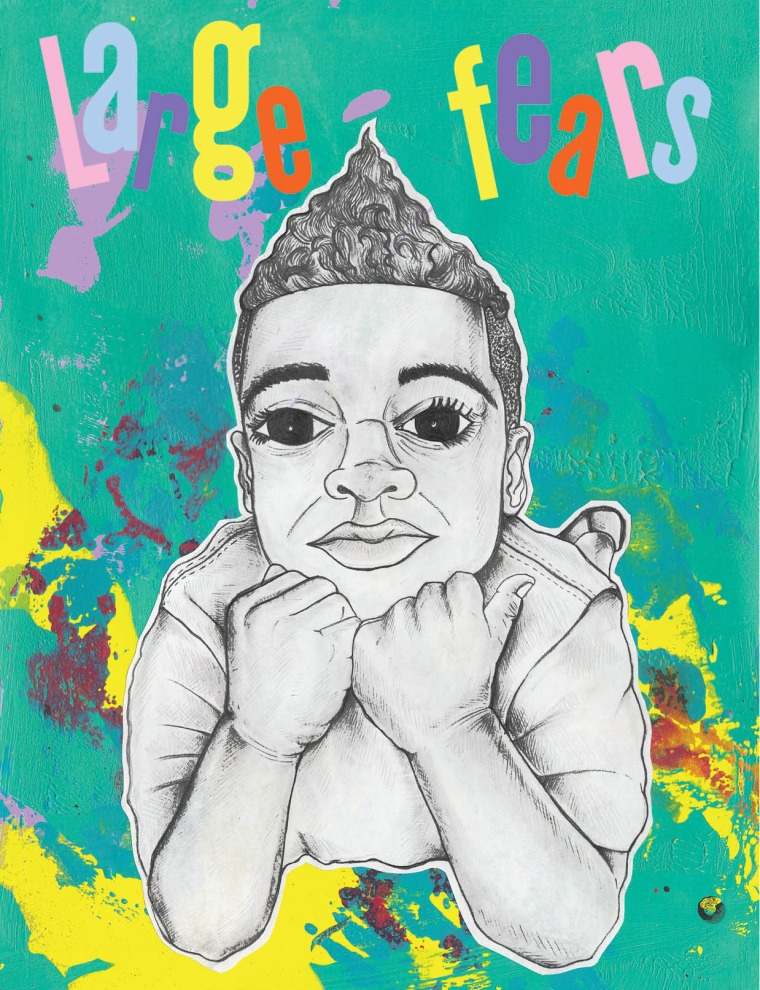
In collaborating on this story how did you two draw from your personal experiences as children in order to convey the emotional state of Jeremiah?
Myles Johnson: The fact that Jeremiah is scared connects to me when I was younger because I was scared too. I didn't have that bravery that kids normally have because of my gender identity and sexuality. I wanted to create a character that learned the lessons it took me over 20 years to learn about not being a slave to fears at an early age.
Kendrick Daye: The thing I liked about the story was that it felt like my life growing up. Jeremiah has big dreams but also a lot of insecurities about himself. He knows he is different. Growing up I was very shy and quiet and hyper self-aware. I didn’t feel accepted or heard. Even the idea that Jeremiah is attracted to fantasies is similar to me because when I was misunderstood I went inside and created art or poetry to express myself.
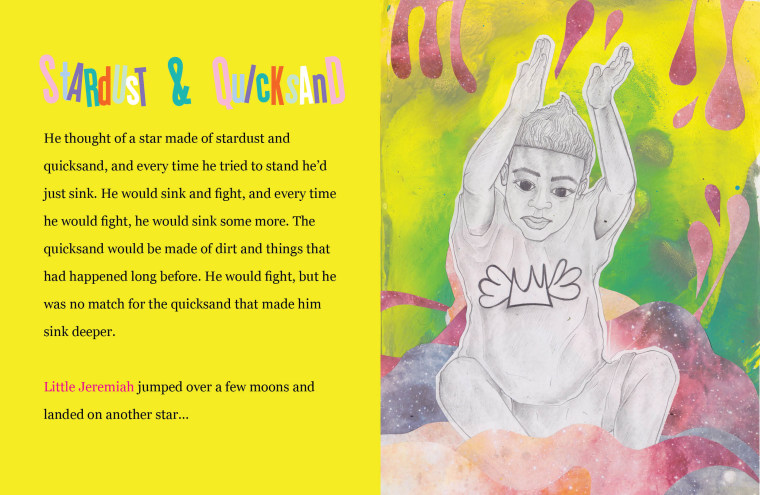
What was the coming out process like for you both?
Kendrick Daye: I was bullied in school but not often. I remember the first time someone called me ‘faggot’ and I froze. I started doing less of the things that would make someone say that. I didn’t have a chance to come out to my family—I was outed. It is still an issue but something we don’t talk about. Releasing this book helps me assert myself more within my family structure because they see it on Facebook.
Myles: My household experience was pretty easy. Now my mother identifies as a lesbian and growing up she was always bisexual. As a child my mom let me know there are different sexualities and gender identities. She let me play with pink and was affirmative of who I wanted to be in life. But in the outside world at school I was picked on for being feminine and gay. It was a war at school all the time of me trying to protect myself in a violent brutal way both verbally and physically. My behavior as a child and teenager was based out of fear. If I dealt with that fear of being unsafe and not accepted instead of running away from it I would have had a healthier road. With this book I get to rewrite my childhood as something more affirmative and positive.
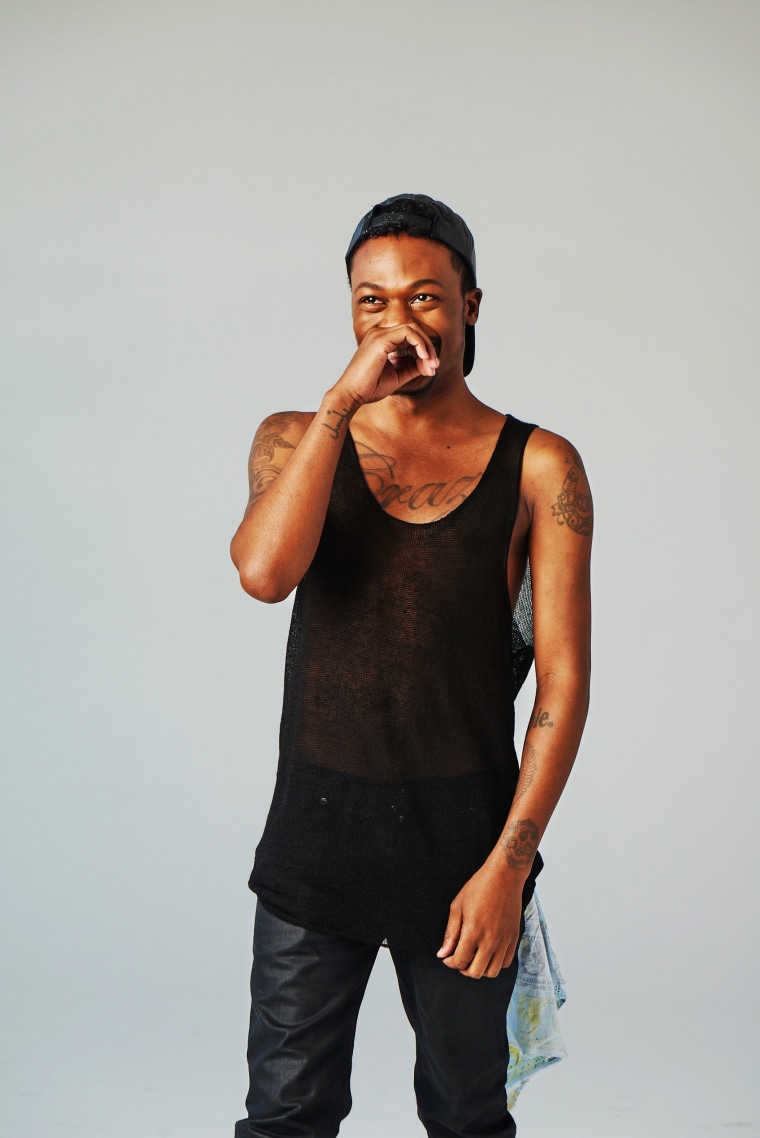
Jeremiah’s father was not mentioned in the book at all but he does have a strong bond with his mother. What statement on the roles of parents are you making with that distinction?
Myles Johnson: It was never a conscious decision. That was just the natural family structure we thought of. I do think it will be interesting in future books to explore his relationship with his father or lack thereof. To me when you look at gay men’s love of women and diva figures a lot of us are looking for a way to come to terms with femininity and being strong. We want that balance of being powerful and soft.
Some parents may feel uncomfortable with addressing sexuality and gender identity with their children. Do you think that is a valid reason for them to possibly object to your book being taught in public settings?
Myles Jonson: I don’t understand what parent doesn't know how to explain to their child that humans love humans and love looks differently. I didn’t politicize or sexualize Jeremiah and that was important. It is a disservice to censor because you are then creating a bigot or a person who can’t acclimate to the world. Silencing me is just good as calling me a faggot.
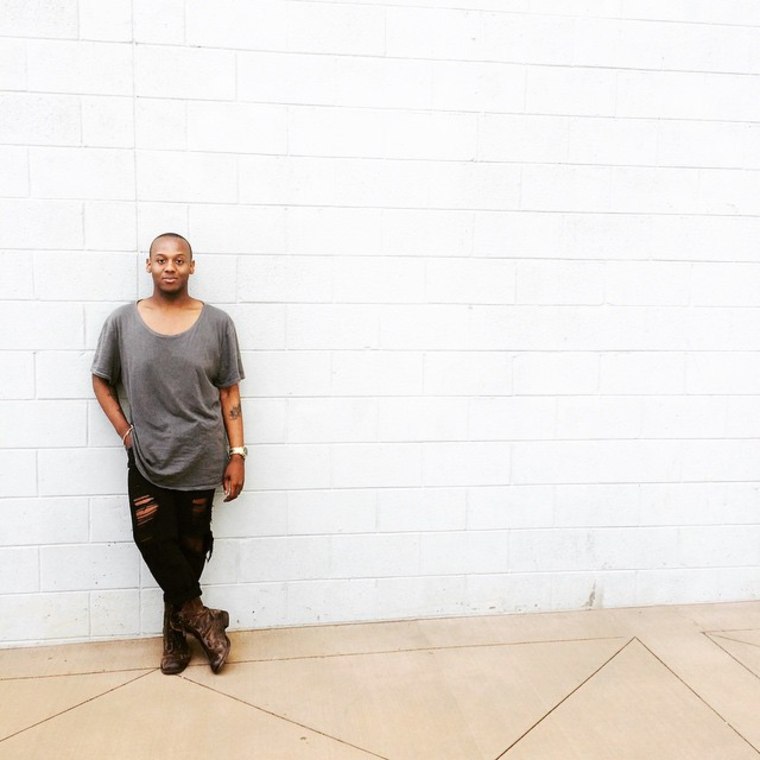
With your Kickstarter campaign you want to include workshops that make the book an experience. What will that entail for children and their parents?
Myles Johnson: We needed an experience anchored by the book. The workshop is an artistic space we conceptualized where we use art and dialogue to demonstrate how large fears can be destroyed and big dreams can be accomplished. Knowing that at the age of five or six can change the world. My biggest dream is to give children free copies of the book. I will do everything in my power to make sure every child can have this story despite income.
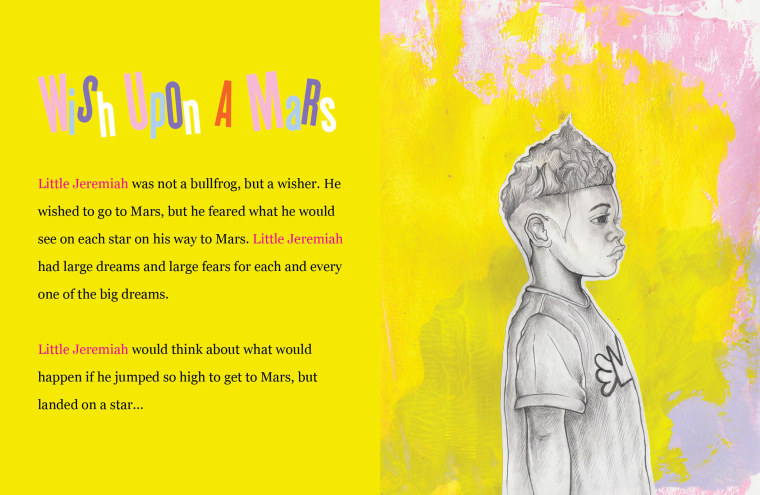
Why did you decide not to pursue the major publishing route?
Myles Johnson: I don’t think either one of us likes the idea of someone saying it’s fine that the character is gay but does he have to be black? We want creative control. We don’t like the idea of a big company making this harder for us.
Do you think publishing companies are sensitive enough to the need for more diversity in children’s literature?
Myles Johnson: It is crazy that people of color can’t go to the book section and see somebody their child might identify with. Most children’s books are cisgender heterosexual white male protagonists. The fact that these people who have access to publish books don’t think about anybody but themselves blows my mind. I think it is disgusting that at the age of six you’re already told you’re invisible and don’t matter.
Kendrick Daye: I think a lot of it has to do with society in general. It’s not just in literature but you see it in the art world too. We live in a white male dominated society and they tell stories they want told. As consumers we have a responsibility too. I hope people will see our book and want to tell their own story of being Indian and gay or transgender. Hopefully we can inspire more diverse stories and dialogues within literature in general.
[This interview has been edited and condensed for clarity]
